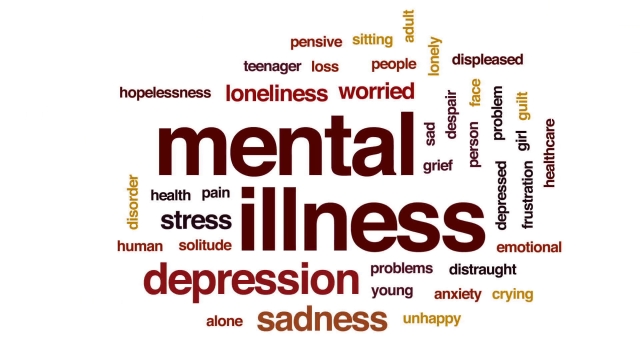Mental health is an integral part of our well-being and yet, it remains a deeply stigmatized and often misunderstood topic. It is an issue that affects people from all walks of life, regardless of age, gender, or social status. However, due to its intangible nature, discussions around mental health have often been met with silence.
But now, it is time to break that silence and bring mental health into the spotlight. With increasing awareness and understanding, it is crucial that we explore the depths of this complex subject. By doing so, we can pave the way for a society that prioritizes mental wellness, eliminates judgment, and offers support to those in need.
In this article, we aim to delve deep into mental health, examining its various aspects and shedding light on the challenges faced by individuals struggling with their mental well-being. By unraveling the complexities surrounding mental health, we hope to encourage open conversations, promote empathy, and shatter the barriers that prevent people from seeking help or speaking out about their experiences.
Join us as we embark on a journey to understand the depths of mental health, dismantling misconceptions, and advocating for a world where nobody has to suffer in silence. It’s time to stand together, address the issues surrounding mental health head-on, and pave the way for a more compassionate and inclusive society.

Understanding Mental Health
Mental health is a crucial aspect of our overall well-being. It refers to our psychological, emotional, and social well-being, and affects how we think, feel, and act. Just like physical health, mental health is of utmost importance and deserves equal attention.
Having good mental health allows individuals to handle day-to-day stresses, make meaningful contributions to their communities, and maintain healthy relationships. It plays a vital role in every stage of life, from childhood and adolescence to adulthood and aging.
However, mental health issues are not uncommon. Many individuals experience challenges that can impact their mental well-being, such as anxiety, depression, or even more severe conditions like bipolar disorder or schizophrenia. It is crucial to recognize that mental health is not something to be ashamed of or ignored, but rather something that should be openly discussed and addressed.
Developing an understanding of mental health can help break the stigma surrounding it, and encourage individuals to seek help and support when needed. By fostering empathy and compassion, we can create an environment that promotes positive mental health and well-being for all.
Recognizing the Stigma
Mental health is an important yet often neglected aspect of our overall wellbeing. Unfortunately, there is a significant stigma associated with mental health that prevents many individuals from seeking the help they need. This stigma creates a barrier to open discussions and can further exacerbate the challenges faced by those struggling with their mental health.
The first step in addressing this stigma is to recognize its existence. Society often fails to acknowledge the prevalence and impact of mental health issues, perpetuating a culture of silence and shame. This stigma can manifest in various ways, such as discrimination, stereotypes, and even dismissive attitudes towards mental health concerns. Breaking through this stigma requires us all to challenge our own preconceptions and start having open and honest conversations about mental health.
One of the significant consequences of the stigma surrounding mental health is the fear of judgment and isolation. Many individuals hesitate to seek help due to concerns about being labeled as weak or flawed. This fear only perpetuates the cycle of suffering and prevents individuals from receiving the support they need. By recognizing and addressing the stigma, we can create an environment where individuals feel safe and supported enough to reach out for help without fear of judgment.
It is crucial to understand that mental health conditions are not a personal failing or a choice. Just like any physical illness, mental health disorders require treatment and support. By acknowledging the stigma associated with mental health, we can begin to dismantle it and foster an atmosphere of empathy, understanding, and acceptance for those who are struggling. It is time to break the silence surrounding mental health and ensure that everyone has the opportunity to lead a fulfilling and healthy life.
Promoting Awareness and Support
In order to promote awareness and support for mental health, it is essential to foster open conversations and create safe spaces where individuals feel comfortable discussing their experiences. By breaking the silence surrounding mental health, we can begin to eliminate the stigma associated with it and encourage people to seek help when needed.
One way to promote awareness is through education. Providing accurate information about mental health disorders, their symptoms, and available treatments can help dispel misconceptions and empower individuals to make informed decisions regarding their well-being. Educational campaigns can be organized in schools, workplaces, and community centers to reach a wide audience and generate meaningful discussions.
Additionally, offering support networks and resources is crucial in ensuring that individuals with mental health challenges feel seen and validated. Online platforms, helplines, and support groups can be valuable vehicles for connecting people who may be struggling with similar issues. Sharing personal stories of resilience and recovery can also inspire hope and encourage individuals to seek assistance and support.
Ultimately, creating an inclusive and understanding society requires collective effort. By encouraging empathy and actively listening to those experiencing mental health difficulties, we can foster a culture of support and understanding. Supporting mental health initiatives, advocating for improved access to treatment, and working towards destigmatization are all important steps in promoting awareness and support for mental health.



